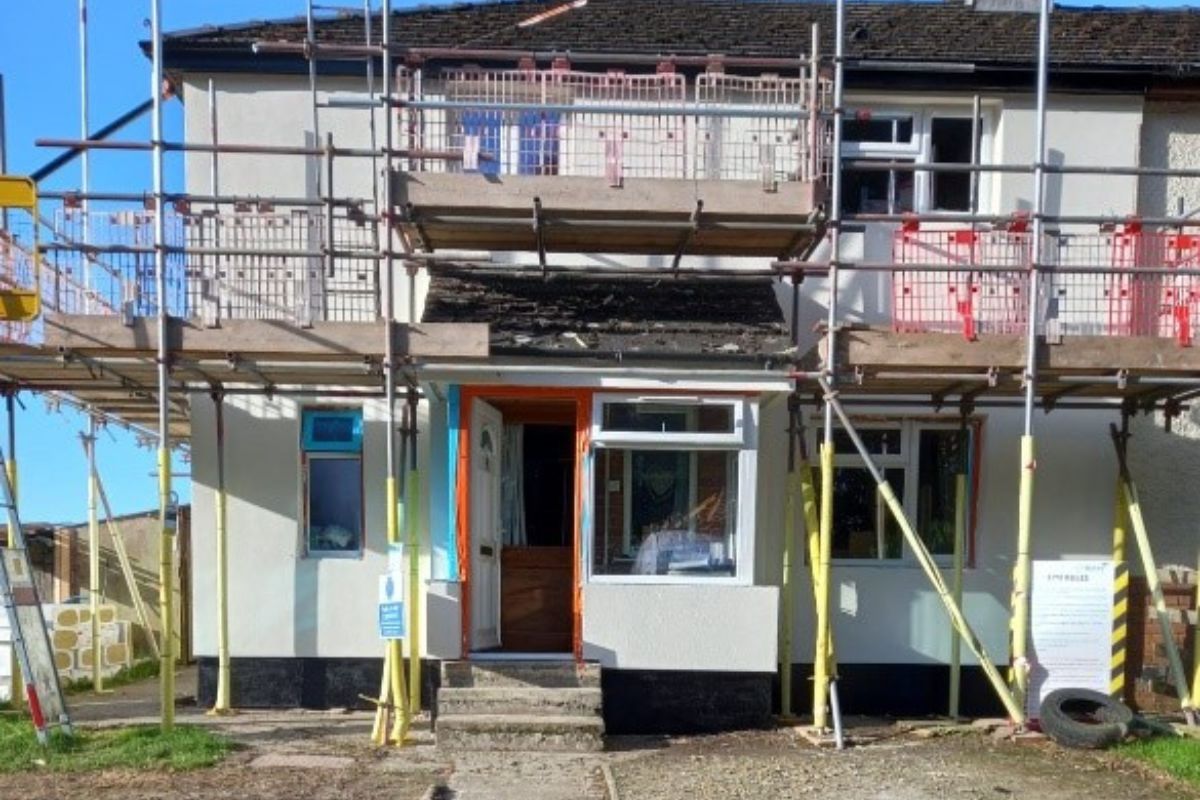To secure a liveable future the property industry must end its addiction to fossil fuels
An alliance of sustainability experts from across the built environment have pledged to boycott new projects that use fossil fuel heating systems. Ronan Leyden, director of Consultancy at Bioregional, explains why it is time for the property industry to #EndGasNow.
On 1 May 2019, the UK government declared a climate emergency. But three years later, it’s clear that we’re not acting quickly enough to achieve a 1.5°C liveable planet, and the built environment remains a huge part of the challenge.
The independent UK Climate Change Committee states that to keep us on track to fulfil the Paris agreement, the UK must reduce its carbon emissions by 63%, based on 2019 levels, by 2035. And our buildings account for a significant 23% of that total. By 2050, just 28 years away, the UK must eliminate buildings emissions completely.
Our challenge is that the UK is hugely reliant on gas boilers to heat what is some of the leakiest housing stock in Europe. But rather than leading the rapid transition to green energy that we need, last year the UK installed over 1.7 million gas boilers, compared to just 67,000 heat pumps – around one-tenth of the number we need to install each year.
Not only is that an extra 1.7 million households locked into fossil fuels, and who may face having to expensively retrofit their property in a few years’ time, that’s also 1.7 million households locked into rising prices and volatile energy markets.
Government policy as set out in its Heat and Buildings Strategy is “not yet comprehensive or complete”, according to the UKCCC. The UK is still only considering introducing legislation to phase out gas in new builds by 2025. And around 85% of existing homes and 63% of public and commercial heating is met through natural gas, which would not be covered by these proposals.
The UKCCC identifies the urgency of ensuring that all new homes are zero carbon by 2025, and that the use of natural oil and coal in buildings is phased out by 2028, and natural gas by 2033. When you consider that new developments can take five to 10 years to plan and build, it is clear that we must plan to build to zero carbon standards now, and that all new schemes should be designed as fossil-fuel free.
What is the #EndGasNow campaign?
Launched in April, #EndGasNow is a rallying call for leaders across the built environment, be they housebuilders, investors, sustainability consultants or other professional services companies. Convened by sustainability engineers Etude, its supporters, including Bioregional, have committed not to work on any new housing or built environment projects that involve the installation of new or replacement fossil fuel heating systems.
As Etude’s Chris Worboys explains, if the UK continues its current trajectory, it will have used up its entire carbon budget by 2028. It is time to stop installing gas and other fossil fuel-based heating systems and accelerate deployment of low carbon heating systems such as heat pumps.
The advantages are myriad. For investors, it future proofs their assets. It means that residents can enjoy homes that are cheaper to heat and will avoid the need for wasteful and expensive scrappage schemes to remove gas heating systems from millions of homes. For developers, including fossil fuels on site can increase planning risk. And more broadly, it directs investment towards the industries we need to build a net-zero future, such as heat pump manufacturers, renewable electricity generators, the electricity grid, electricity retailers, and heat pump installers.
Can fossil fuel-free buildings be achieved in practice?
The short answer is ‘yes’. The technology exists – for many years we have only worked on new projects that aspire to be net zero carbon, without fossil fuels as part of the energy mix. And we know that leading industry players are ready to make the switch. At Bioregional we work with ambitious clients – none are asking if we should end gas now – they’re just asking how we can do it.
The Netherlands has proved that there are other routes, committing to phase out gas in new buildings way back in 2018, and that by 2030, 1.5 million homes must have changed to a renewable heat source. Coupled with transitioning to green energy sources, the UK desperately needs a deep retrofit programme to transform its leaky building stock. This could generate over 130,000 skilled green jobs over the next eight years.
What about alternatives?
Unfortunately, there are no good options. Carbon offsetting ignores the need for the rapid emissions reductions we require, and we don’t have enough space for natural solutions to remove the additional carbon caused by heating buildings.
‘Green hydrogen’ is not available in sufficient quantities or price points to decarbonise heating within the timescales required, and blue hydrogen does not offer low carbon heating. And ‘green gas’ requires endlessly growing huge amounts of crops, displacing land that is needed for food production and exacerbating the biodiversity crisis caused by the destruction of natural habitats.
To secure a liveable future for our planet, the property industry must commit to end its addiction to fossil fuels, and #EndGasNow.



